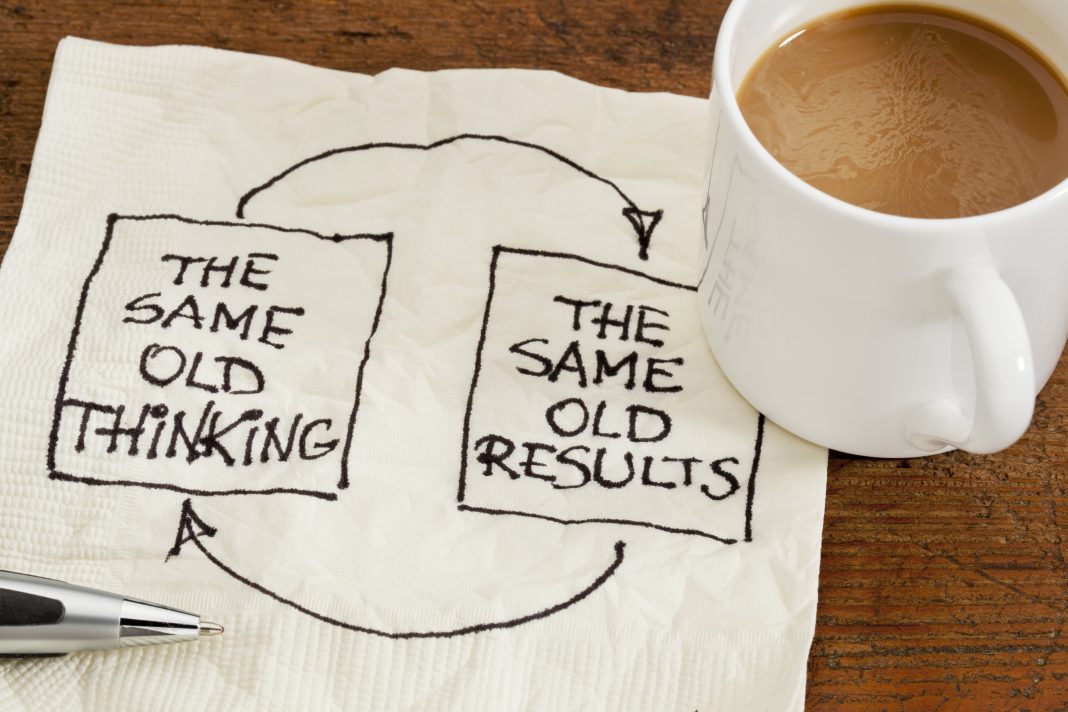There is no doubt that at this very moment in time we are living in a VUCA world. VUCA, a term originated from the US army to describe the world after the Cold War, represents a world or environment with:
Volatility – change is happening very quickly
Uncertainty – it’s difficult to predict the future
Complexity – there’s a variety of decision-making factors
Ambiguity – there is more than one interpretation
Regardless of industry or the individual’s role within it, many concerns are being raised about job and business security. Is my industry safe? What happens if the situation gets worse? Where can I find new customers? How can I be better prepared?
I don’t have the answers to these questions but what I can share is some techniques on how to see through the VUCA fog and explore new ways of working. To do this I have given a completely new meaning to the VUCA acronym to describe some key principles of success:
Vision – know your outcome
Understanding – have sensory acuity
Change – have behavioral flexibility
Action – simply take action
Vision
When events pull you off course having clarity around your vision and knowing your outcome can keep you on the right track.
Keep the big picture in mind and remind yourself what is it that you want to achieve. Some questions to consider: What’s important to me? What do I really care about? What do I want? You can refer to my goal setting tips for more guidance on creating your vision. Once you have a clear vision of the big picture ensure that all the tasks you are doing also have a clear outcome that is aligned to achieving your vision.
| Example Clare’s vision is still to grow her business by 30% by the end of 2020 by having a positive impact on her client’s business. Her tasks each day are now focused on supporting her clients through the COVID-19 pandemic as this is aligned to her customer satisfaction goals. |
Understanding
Better understanding will enable you to notice everything that’s going on so that you know how best to respond during this time.
Listen, empathize, have sensory acuity and take time to understand your customers, your employees and all the people that you are communicating with. Deepen your understanding by being open to giving and receiving feedback. When communication isn’t happening face to face you need to listen even more carefully because you miss out on the non-verbal communication aspects. Practice switching off the inner voice in your head and avoid jumping in too quickly to offer your opinion and simply listen. Be observant of the pace and tonality as well as the words being spoken.
| Example By listening attentively to her clients, Clare hears lots of pauses and hesitations with regards to having their regular review meetings. Clare’s empathizes and asks her clients for their feedback on what she can do right now to help given the current situation. The client appreciates Clare’s attitude and introduces her to some key team members to continue working with. |
Change
The more flexible you are in your own behaviour, the more you are controlling the situation you are in.
Be flexible and be open to learning new ways of doing things. If the feedback you are getting through a deeper understanding of your environment is giving your signs that you’re off track to achieving your goals, then it’s time to change your approach and try something else.
| Example Clare’s is using Microsoft Teams as an alternative to face to face meetings. She has also revised her company offering so that the services are better aligned to support her client’s biggest issue right now. |
Action
When situations are tough it can be easier to make up excuses or give reasons as to why doing nothing is the right thing to do. The biggest risk is no action.
While this might seem obvious, many people do not take action during challenging times. Even if you have a clear vision, a good understanding and are flexible to change you still need to take action. Rarely has somebody achieved anything by sitting around and pitying the situation so it’s important to always ask yourself, what small step can I take today towards achieving my goals?
| Example Despite her best efforts, Clare’s clients have said that they don’t want any more meetings with her for the next month. Claire takes action and writes a plan on what to do with the extra time she will now have. Her plan includes on online courses that are relevant for her role and working on her client account plans. |
We cannot take full control of what’s going on in the world, but we can take 100% responsibility for having a positive mental attitude and for discovering new ways of doing things. So finally, be conscious of the thoughts that run through your mind and of how you act. Have positive thoughts and the attitude of someone that wants excellent results!
